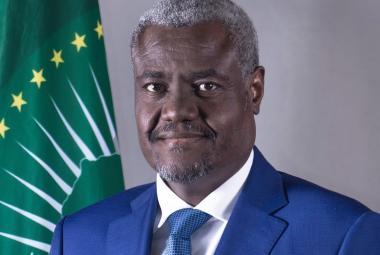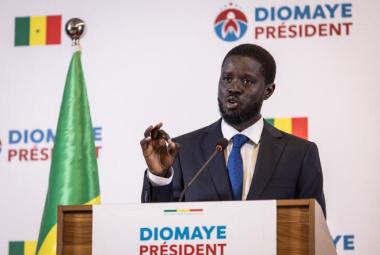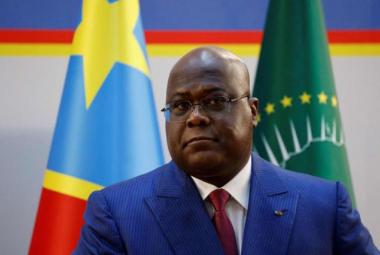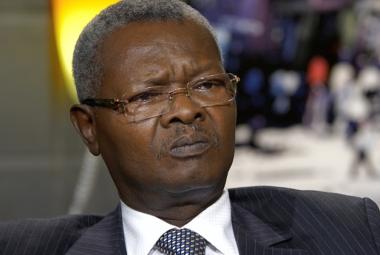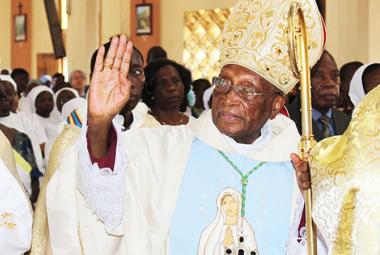From the constitutional revision project to the constitutional revision itself, President Faure Gnassingbé has always followed the same logic since taking power in Togo. After having ruled out all potential rivals in his family circle, he intends to keep control of Togo like his late Father Gnassingbé Eyadema. Explanations.
After a first vote on March 25, not without causing an outcry, President Faure Gnassingbé requested a second reading of the text on Friday April 19. As if to distract from the discontent of the Togolese with this political maneuver whose purpose is well known. In the end, following the modification of a few articles which clearly did not change the substance of the project, the text was adopted by 87 votes. What's worse is by deputies whose mandate has already expired.
Behind the latest revision of the country's Constitution, many saw the hand and advice of the Manssah Group. Based in Lomé since 2023, the Group of Cameroonian journalist Alain Foka and his team from the Manssah Group were quick to deny the criticism. Accusations brushed aside by Mr. Domche who, through a press release from the said company which declared in particular: “Mansssah, as you know from the beginning, works with the most total transparency. We are neither directly nor remotely involved in what is currently happening in Togo (…) It was therefore important for us to make this clarification so that no one is in the dark. The day Manssah is involved in a constitutional reform or an institutional transformation project in Africa, you will be the first to know. We don’t work in the dark”
But the fact remains that many Togolese who have now given him the nickname “businessman of Pan-Africanism” already have a strong opinion. Including the newspaper Liberté which believes that the colleague is trying to do his business on the back of the suffering of the Togolese.
All things considered, in defense of Alain Foka and his Manssah Group, one can say that he is not the President of the Republic of Togo, Faure Gnassingbé. Who must be held solely responsible for his actions at the head of his country, regardless of the advice he may receive from everyone, including from his peer heads of state of neighboring or distant countries.
After the public outcry caused by the constitutional reform, the Faure Gnassigbé regime had it adopted by the majority of deputies supporting its cause. Thus moving the country from a presidential regime to a parliamentary regime. With the key now being the power for Parliament to elect the President of the Republic. And the opposition to President Faure Gnassingbé calls for a “constitutional coup d’Etat”. Because after 19 years in power, he could claim to be elected again and again to the supreme office of his country.
The permanent coup d’Etat
“This adoption is confirmation that the regime does not listen to the Togolese. He preferred to carry out a real change in force, a constitutional coup d'Etat which shows the true nature of this regime. “At the DMP, we are not giving up at all. We have, with the other opposition forces, taken legal action to the ECOWAS court of justice.” This was the statement to RFI by Brigitte Kafui Adjamagbo-Johnson, jurist and emblematic figure of the Togolese opposition, notably the Dynamique pour la majority du peuple. And to invite the Togolese to mobilize to sanction the regime during the legislative elections of April 29, 2024.
Faure Gnassigbé came to power through a constitutional coup in 2005. By blithely violating the Togolese Constitution on several points, to proclaim himself President of the Republic to replace his deceased father. He ousted the President of Parliament, Ouattara Fambaré Natchaba, who was the constitutional heir apparent. By carving out a tailor-made Constitution, Faure Gnassigbé has remained so to this day. Not to mention the numerous electoral hold-ups and other revisions of the country's electoral laws to the detriment of all the leaders of the Togolese opposition.
He declared in vain: “I am not preparing any putsch against Faure. I certainly have differences with him on the conduct of the country and the party, but I will not use force against him. On a personal level, it is true that we are not close, but we are not obliged to be friends,” during an attempt at conciliation in Burkina Faso, facing President Blaise Compaoré and his Minister of Affairs. foreigners, Djibril Bassole, at the height of the rumors which were buzzing about a possible coup d'Etat in preparation, fraternity was not enough to save Kpatcha Gnassingbé.
Beyond this constitutional revision, the attitude of President Faure Gnassingbé towards the putschist and military-civilian regimes which have established themselves in West Africa, particularly in Mali, Burkina Faso and Niger, already spoke volumes. West African nationals and African public opinion never stopped questioning the real motivations of the Togolese head of state regarding his actions in the face of this democratic regression in the sub-region. . Even if Togo has never functioned democratically, let alone organized democratic and fair elections.
The interested mediation of Faure Gnassingbé
Faced with the military coups that West Africa has experienced in Mali, Burkina and Niger, President Faure Gnassingbé of Togo has gone it alone in his positioning. By standing out from its peers in the Economic Community of West African States (ECOWAS) and the decisions of this institution. A strategy that questions and divides, even beyond the people of this region.
Many West Africans wonder why President Faure Gnassingbé is so complacent with the putschists or the military. Which thus call into question the democratic principles so dearly acquired in their respective countries. It is now an open secret that the Togolese head of state has never been intransigent towards all the soldiers who have plotted coups d'Etat. That's the least we can say about it. Whether in Mali, Burkina Faso, Guinea or even Niger, he will have had attitudes of listening, conciliation, and in any case refusing to align himself behind positions of principle. Even to the point of confusing some of his peers in the Economic Community of West African States (ECOWAS). Togo has never followed the decisions resulting from the summits of this institution against the new military powers in West Africa.
One might simply think that it is because he listens to his military leaders. Because, benefiting from a certain proximity to his army, thanks to which he came to power in 2005, he chose not to condemn the putsches without keeping the negotiation channels open. However, it must be seen as a well-thought-out strategy in advance. Ensuring that, if necessary, he benefits from the same complacency vis-à-vis his regime whose governance is characterized by permanent coups d'Etat.
By Daniel Yaoni




